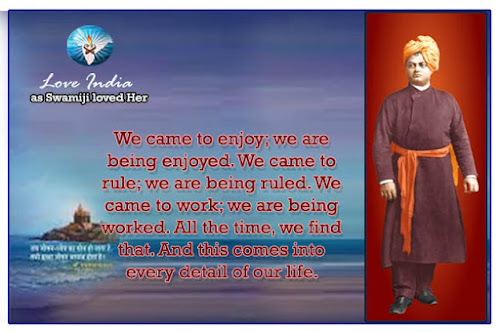The first angle of our triangle of love is that love knows no bargaining. Wherever there is any seeking for something in return, there can, be no real love; it becomes a mere matter of shop-keeping. As long as there is in us any idea of deriving this or that favour from God in return for our respect and allegiance to Him, so long there can be no true love growing in our hearts.
Those who worship God because they wish Him to bestow favours on them are sure not to worship Him if those favours are not forthcoming. The Bhakta loves the Lord because He is lovable, there is no other motive originating or directing this divine emotion of the true devotee.
We have heard it said that a great king once went into a forest and there met a sage. He talked with the sage a little and was very much pleased with his purity and wisdom. The king then wanted the sage to oblige him by receiving a present from him. The sage refused to do so, saying, “The fruits of the forest are enough food for me; the pure streams of water flowing down from the mountains give enough drink for me; the barks of the trees supply me with enough covering; and the caves of the mountains form my home.
Why should I take any present from you or from anybody?” The king said, “Just to benefit me, sir, please take something from my hands and please come with me to the city and to my palace.” After much persuasion, the sage at last consented to do as the king desired and went with him to his palace.
Before offering the gift to the sage, the king repeated his prayers, saying, “Lord, give me more children; Lord, give me more wealth; Lord, give me more territory; Lord, keep my body in better health”, and so on. Before the king finished saying his prayer, the sage had got up and walked away from the room quietly. At this the king became perplexed and began to follow him, crying aloud, “Sir, you are going away, you have not received my gifts.” The sage turned round to him and said, “I do not beg of beggars. You are yourself nothing but a beggar, and how can you give me anything? I am no fool to think of taking anything from a beggar like you. Go away, do not follow me.” (III, 87 )

































